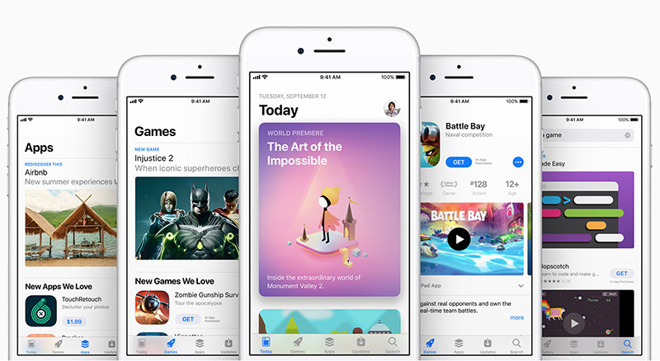Apple appears to be ridding the App Store of so-called "scammy" apps after multiple media outlets exposed questionable pricing tactics that dupe users into expensive subscriptions.

On Monday, a TechCrunch report named a number of apps that seemingly manipulate Apple's subscription pricing mechanism to the disadvantage of users.
In many cases, "scammers" take advantage of Apple's subscription mechanism, which allows developers to provide free trials that automatically convert to monthly agreements. Specifically, unscrupulous app makers are using a "dark pattern," intentionally deceptive user interface elements, and other strategies designed to confuse or trick customers into starting convertible trial subscriptions.
The methods appear effective, as some "scammy" apps hover in the upper echelons of Apple's Top Grossing apps list despite offering limited, or in some cases duplicative, utility.
Earlier this month, Forbes published a long, but not exhaustive, list of apps that employ similar schemes to milk hundreds or thousands of dollars from individual users per year.
One such app, TinyLabs' QR Code Reader, pushed users to upgrade to a "Pro Version" by tapping a large "start" button that disguises monthly pricing information in small font. Users were then committed to a three-day free trial that auto-converted to a $3.99 per month subscription. The app was on track to generate annual revenue $5.3 million despite mirroring functionality found in Apple's own Camera app.
Weather Alarms, an app highlighted by TechCrunch, deceives with a full-screen ad with two buttons: try for free or pay. An option to close the window is timed to appear after a few seconds, leaving users to believe the two subscription choices are their only options. If the trial is not cancelled in time, unwitting customers wind up paying $20 a month for weather alerts.
Apple, however, appears to be cracking down on dubious titles. Both QR Code Reader and Weather Alarms are no longer available on the U.S. App Store, while 11 of the 17 apps mentioned in the Forbes article have also disappeared.
The matter boils down to customer awareness and vigilance, and Apple is at perhaps partially to blame for aberrant behavior after carefully pruning the apps in its walled garden.
Customers have come to expect a certain level of decorum from developers allowed in the App Store, as stipulated by Apple's Developer Guidelines. And indeed, the company strictly forbids fraudulent practices and notes developers must clearly state subscription terms.
From Apple's Developer Guidelines section 3.1.2(a)
Apps that attempt to trick users into purchasing a subscription under false pretenses or engage in bait-and-switch practices will be removed from the App Store and you may be removed from the Apple Developer Program.
Still, "scammy" apps exist and rank as some of the App Store's top grossers, proof that Apple is hard pressed to comprehensively police its massive digital software repository.
Ultimately, it is caveat emptor in the App Store. Users are urged to read the fine print, review purchase histories and know where to find, and how to cancel, active subscriptions (Settings > iTunes & App Store > Apple ID > View Apple ID > Subscriptions).


